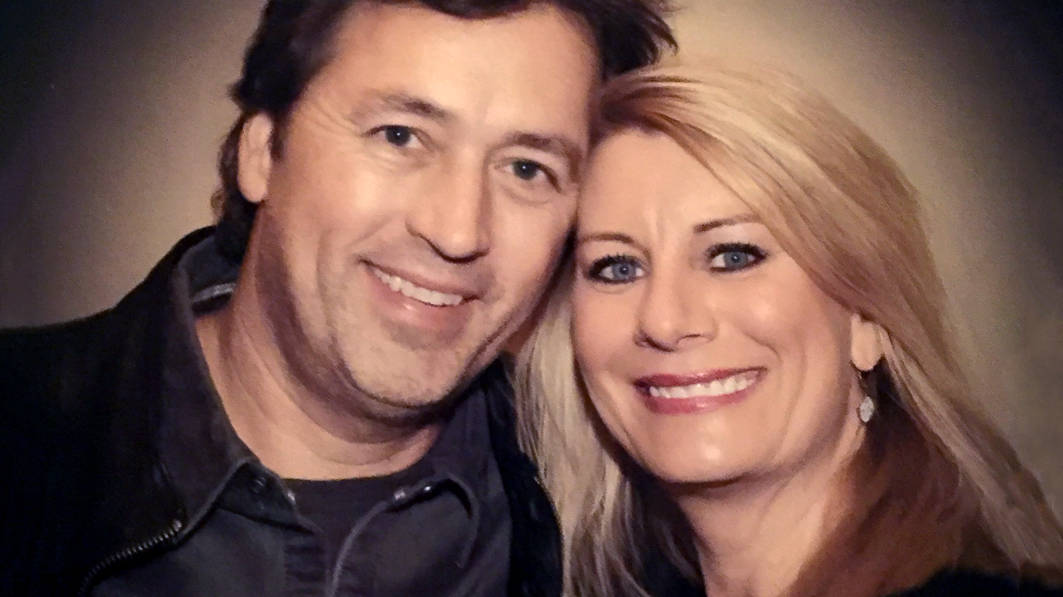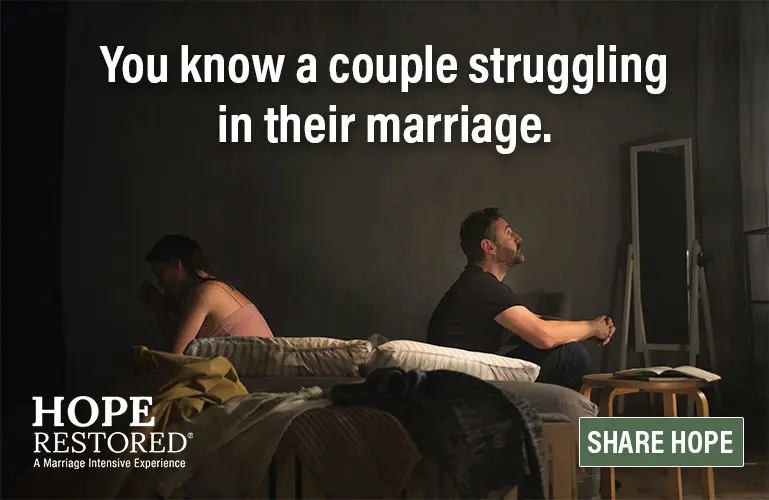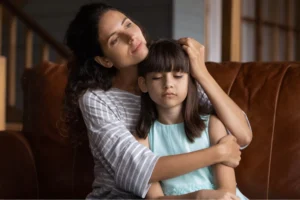He’s often referred to as “the beardless brother”; she’s known as the original Robertson daughter-in-law. Together they are the most recent addition to the Robertson family television series, “Duck Dynasty.” But Al and Lisa Robertson have so much more to say than just their lines on A&E’s family-friendly television show.
Al and Lisa have been involved in ministry for most of their married life and draw from personal experience as they work with couples in every stage of the marriage adventure — from the hopeful who are engaged to the hopeless who are separated. Their own story of marital pain and reconciliation, as described in their book A New Season, has inspired countless husbands and wives.
A personal story of struggle
Al and Lisa dated on and off during their high school years, marrying on Nov. 9, 1984 — when they were both still teenagers. The story of their young married years is typical in that it involves post-high-school education, career building and raising babies. It isn’t typical in that it also includes dishonesty, deceit and shame.
It was the summer of 1989 when Al and Lisa experienced what they now refer to as “dodging a bullet.” Lisa had become emotionally involved in an inappropriate relationship with a man she met through work. She clarifies that the relationship was never sexual, although it did become romantic.
In their book, Al acknowledges offering forgiveness to the man involved because he had apologized to Al with humility and courage. Al writes that because Lisa, too, felt terrible and was truly sorry, he forgave her. But he also admits that he made the mistake of threatening his wife by saying: “If you ever do anything like this again, I will divorce you!” He writes, “In the wake of the infidelity, everything we did for the next several months, we did wrong. We wanted to reconcile, but we really did not know how. … Every time we had any kind of argument, I managed to bring up Lisa’s extramarital relationship and used it against her.” Apparently reconciliation would require more than just staying together.
Although Al and Lisa both agree that during the next several years they managed to “function well,” they also admit to having taken care of their family and their ministry, but not their marriage. Less than a decade later, the Robertsons once again found themselves dealing with the issue of unfaithfulness.
Lisa had been contacted at work by an old boyfriend. Fourteen months later, she was caught up in a full-blown affair. It was the summer of 1999 when Al became suspicious that Lisa might be seeing someone, and despite her denial and deceit, he finally used cell phone records to piece together the truth. This time the consequences would be greater and the work they would do to rebuild their relationship would be intense.
During this season in their marriage, Al and Lisa opted for a temporary separation and committed to working with a professional counselor. Their efforts paid off when they celebrated a private vow-renewal ceremony in December of that same year. Al and Lisa clarify in their book: “At this writing, we have 30 years of marriage and almost 50 years of living under our belts. One of the hallmarks of our lives and our relationship is reconciliation. Simply put, reconciliation is the idea that things and people that are broken can be put back together.” And that’s why they encourage couples dealing with the shock of an affair to consider the possibility of recovery.
Recovery after an affair
Al and Lisa talked with Focus on the Family about their journey from devastation to forgiveness, and how they’re now committed to helping other couples rebuild their relationship after an affair. When asked about how spouses can make marriage work while living in a culture that teaches it’s easier to run than work on a relationship, Al acknowledges that a person’s natural reaction is to conclude that he or she didn’t marry the right person — but there’s more. Although a wounded husband and wife ultimately have to be the ones to make the decision to stay together, Al and Lisa endeavor to inspire couples toward that decision by discussing the marital factors that often lead to affairs.
“You didn’t start out standing in front of a preacher making your vows and imagining you’d be sitting on this couch talking to us today,” Al explains to couples. “So let’s talk about how this came about. We’re looking at what’s wrong to get us to this place.”
The Robertsons then work to help couples consider what happens if they divorce. Understanding that not every marriage can survive, Al and Lisa encourage husbands and wives to look ahead by considering what their post-divorce family might look like five years down the road. For couples with children, Al and Lisa talk about them because they believe kids don’t deserve to be in this place of brokenness. “They were born into this world deserving for you guys to get it right,” Al challenges the parents. He says that this kind of focus often resonates with couples in crisis.
Lisa says, “We now live with our oldest daughter and her husband and our three grandkids. Anna was 11 when the affair happened, she got married at 18 and had her first baby at 19. That’s just eight short years later, and we [Al and I] had a grandchild together.” With that quick bit of family history, Lisa challenges couples to consider what divorce might do to the lives of their children and grandchildren. When you think about what the future might look like with somebody else (remarriage), it would mean grandkids would have multiple grandpas and grandmas to share the holidays with. It would mean that both generations would suffer the consequences of choices made in the disappointment of today.
Forgiveness and reconciliation
Al and Lisa acknowledge that it’s hard to move past the hurt a couple feels in the moment of betrayal and discovery. But their experience has also taught them that choosing to stay together and work on reconciliation is best for everyone involved. “We now have older kids, and our daughter has told us many times that she wants a marriage like ours,” Lisa says. “She’s not talking about wanting to go through all the bad things that we went through, she’s talking about wanting the relationship that we have [today]. That would not have been possible had we not stuck it out and worked through our problems.”
Al and Lisa believe that couples must do the hard work after an affair — whatever that looks like. Regardless of the details of a couple’s story, the Robertsons are convinced that part of the hard work for every couple will ultimately be the choice to forgive. Too often Al and Lisa have seen unforgiveness leave a spouse dealing with bitterness, resentment and anger that has the potential to make him or her a bitter person. Lisa doesn’t hesitate to clarify that as believers we must consider forgiveness “because God tells us that we must forgive.” She points out that God has not given us a definitive timeline regarding forgiveness, but if God tells us to do something, then she’s convinced it must mean He’s given us the capacity to do it. Understanding that a wounded spouse may feel the cheating spouse doesn’t deserve forgiveness, Lisa comments, “When God tells us to forgive, He doesn’t tell us to forgive for the other person. He tells us to forgive for ourselves because it releases within us the victim mentality and the hurt.”
Al clarifies that forgiveness is a process that takes time.
We don’t ask couples to [immediately] forgive each other in the case of an affair. I think that’s a mistake for a lot of people because they want to hurry and get there. But to me that’s the equivalent of saying that someone who has lost their spouse just needs to hurry up and get over it.… This is a loss. When an affair happens, there’s a loss of trust, there’s a loss of intimacy, there’s all these questions that come out. You can’t just snap your fingers and every time we have a discussion we just say we’re going to forgive all that and move on — it doesn’t work like that. There’s too much loss that has to be grieved.… We don’t try to rush that process. That has to be a process through counseling, sometimes through separation.
These days, Al and Lisa say it’s important that they reflect on the reasons they chose to forgive each other during those painful years. “We forgave each other because we loved each other,” Lisa clarifies, “because we wanted our lives to be whole together in God.” And their life today is evidence of that wholeness.
Al acknowledges that he and Lisa aren’t professional counselors, but they know how to empathize with wounded husbands and wives at the same time they offer encouragement for couples to stay together. The Robertsons have lived through the pain of adultery, and thanks to the healing they’ve experienced in their own marriage, they now help other couples find their own path to forgiveness. It’s a difficult journey, but Al has no doubt that when a husband and wife arrive at the place where they can give and receive words of forgiveness, they will be changed for the rest of their lives. Al and Lisa are living proof it’s a journey that’s worth the effort.














